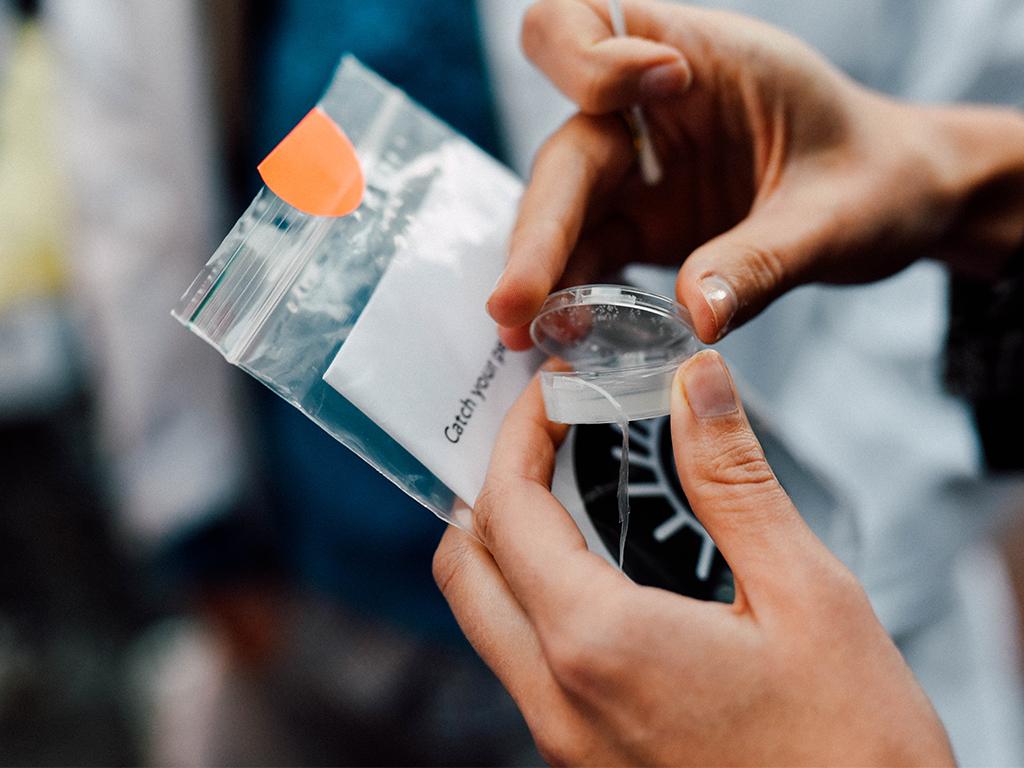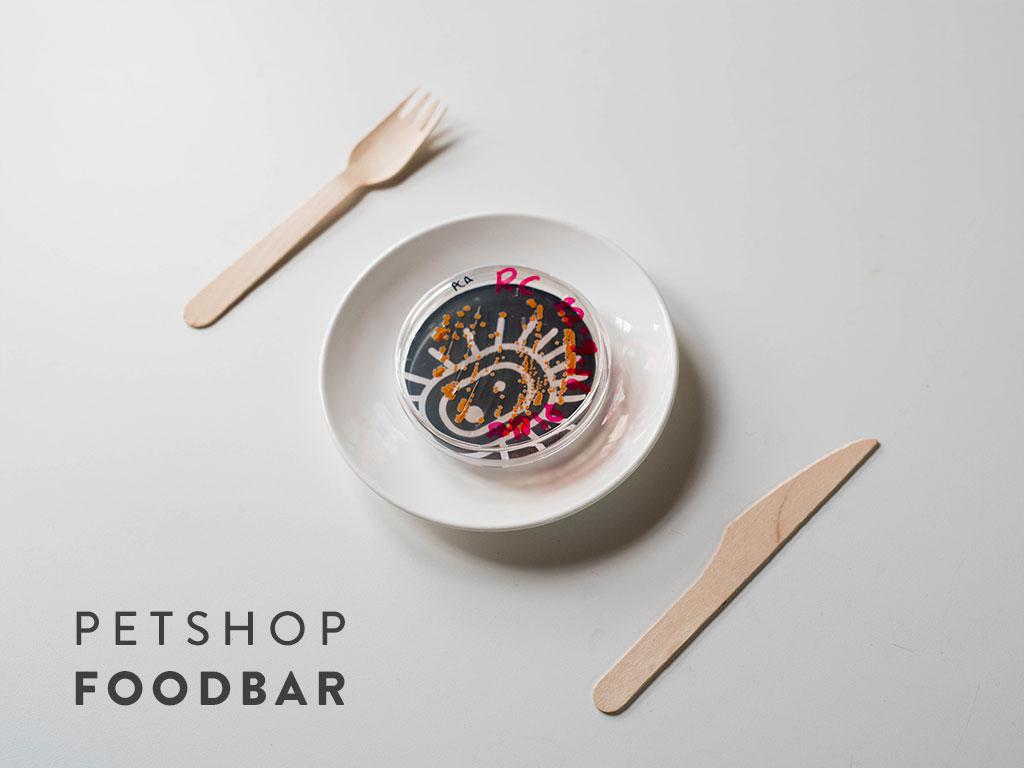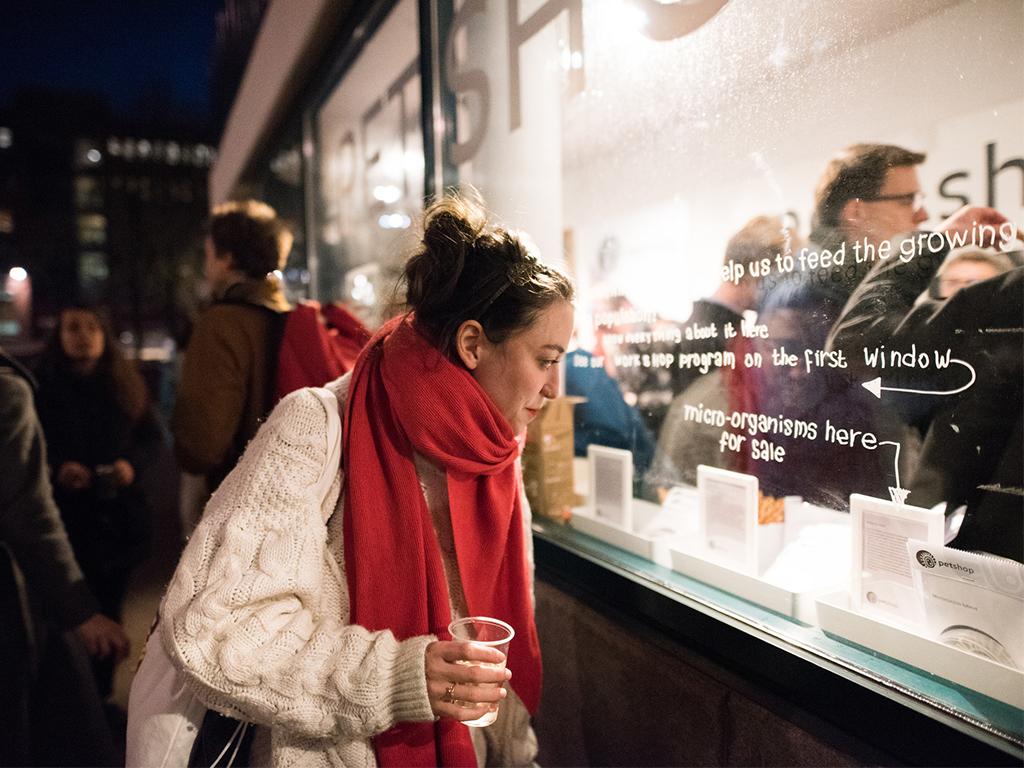Waag has a biobank full to bursting with friendly, adorable micro-organisms. During the Dutch Design Week, their microbes are on sale! Bacteria, fungi, molds, yeasts, and algae. You can buy these tiny cuties as micropets and experience the fun reward of caring for these tiny creatures. Wake up every morning and be welcomed by the enthusiastic growth of your flock.
Learn how to take care of night-owl photobacteria, cool-cat spirulina, or fluffy fungi (the golden retriever of micropets)—and they’ll treat you well in return. Yes! It pays to invest in the relationships with your smallest friends. Get to know their strengths and make them work for you. Some of them might even eventually take care of you and protect you.
Pet shop is not just a way to find reimbursement for costs. Waag strives to make biotechnology more accessible to society. Their lab is housed in the tower of one of Amsterdam's medieval buildings and is full of incubators, petri dishes, and microbes. In their Open Wetlab, they (along with artists, hackers, designers, activists and scientists) work to open up biotechnology.
Pet shop is executed by a team of makers from Waag after an origial idea of María Boto Ordóñez.
Waag has been working to open up closed systems since 1994 with the advent of their “digital city” (the first public, social use of the internet in the Netherlands). Since then, the organisation has dedicated itself to a philosophy of opening up the black boxes of closed technology: software, hardware, and even methodologies.
Over the past few years, Waag has added biotechnology to its list of things that should be opened up to the public. To achieve this goal, the Open Wetlab offers free workshops to teach people how to work safely in a lab environment, use technical instruments, create useful bio-materials, and run experiments. They also run a more intensive programme, the Biohack Academy, to teach students how to setup their own Do-It-Yourself laboratories. And, they actively court artists and designers to use their facilities for personal projects. What, you may ask, comes out of all this? So far, they've seen a microscopic opera, a bacterial typeface, and—yes—even yoghurt fermented by cultures taken from human genitalia.
But, it's not all fun and vaginas in the Open Wetlab—they also dedicate themselves to serious research in the field of biotechnology and sustainability. Recently, the lab won a large grant to start “BioStrike,” in which a collective of DIY biotechnologists try to solve the modern crisis of antibiotic resistance. So, cherish your micropets and help change the world.
All pets are treated with respect and all legal regulations of the Netherlands and the EU apply. No GMO’s are being traded.


